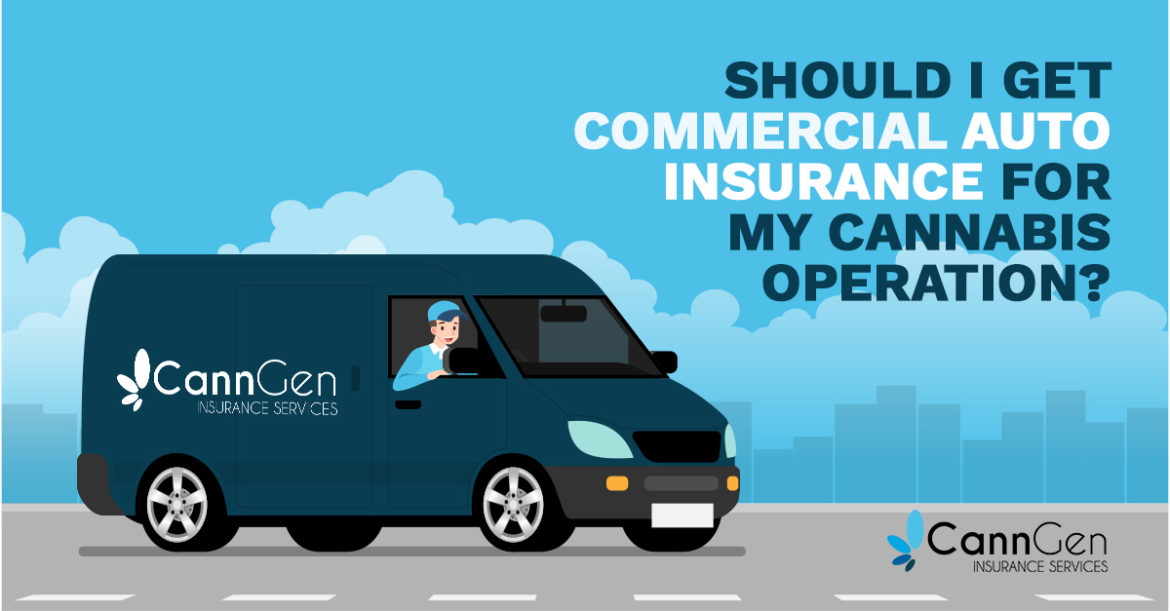
Should I Get Commercial Auto Insurance for My Cannabis Operation
Many business owners assume that their standard insurance policy, such as their property or general liability coverage, will protect them when their products or other property are being transported from location to location. However, once in transit, these coverages often no longer apply, potentially putting your business at risk.
Adding commercial auto coverage is an important product line in a comprehensive risk management approach and can cover the physical damage and liabilities caused by an employee while operating a company vehicle. Keep reading to learn more about adding commercial auto coverage to your cannabis insurance policy!
What is Commercial Auto Insurance?
Commercial auto policies cover the value of your vehicles and the property within. These policies also provide liability protection for third party damages. Many commercial auto policy providers won’t cover the transportation of cannabis, even if you disclose your business works with cannabis at the time the policy is purchased. For this reason, cannabis companies add auto coverage as part of specialized cannabis insurance policies, working specifically with insurance partners that have experience working in the cannabis industry.
What does a commercial auto insurance policy cover? A standard commercial auto policy covers you in the case of a trio of potential instances:
- Liability in the event of an accident where a representative of your business is at fault
- Collision coverage for damages to your vehicle and property (including cannabis flower and products), regardless of fault
- Coverage for damages in case another driver isn’t insured
Adding Hired and Non-Owned Coverages
There may be times when your business will need to use vehicles that don’t belong to you to complete your operations. This could be a “hired” vehicle, like a rented, leased, or borrowed car or truck. If you or one of your employees is at fault for an accident while using a hired vehicle, this auto coverage will protect your business in case of liability and potential lawsuits.
This type of coverage also includes when employees use their own vehicles in the course of their work. If, for instance, your employee used their car to run an errand for your business and was at fault for an accident, non-owned auto coverage will cover third party damages and injuries caused by the accident, as well as injuries to your employee and their vehicle.
An employee does not need to be transporting cannabis products for this coverage to apply. Any time one of your team members is conducting operations for your company (picking up supplies, driving to meet vendors, traveling to trade shows and events, and even picking up lunch for the team), your business can be liable for the fallout from any accidents that occur.
Many businesses believe that their standard commercial auto policy will cover these events, but that isn’t always the case. If not included, hired and non-owned coverage can be added as endorsements to your general liability insurance policy.
Speak with your insurance provider to add commercial auto coverage, including hired and non-owned auto, to your current policy and to ask any questions you may have regarding your commercial auto coverage.
Learn more about commercial auto coverage here.
Protecting Your Company Against Risk
You can insure your cannabis business against risk with a comprehensive insurance policy. If you don’t currently have an insurance provider, it is important that you find a partner with prior experience working with cannabis companies. They should also have the necessary knowledge of state cannabis regulations to ensure your business is fully compliant and covered against potential risk. Contact CannGen here to see what coverages you need to best protect your cannabis business.
More Cannabis Industry News
Want to stay up to date on the latest? You can find more on important topics in the cannabis industry on our news page.
Or get more information about comprehensive insurance solutions for the cannabis, CBD, and hemp industries from CannGen here.
Disclaimer: Information shared is for general purposes only.


 US
US
 US
US
 CA
CA
 EU
EU
